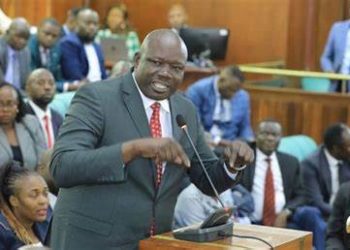By THE INDEPENDENT UG
Kampala, Uganda | THE INDEPENDENT | Learners who took the Uganda Certificate of Education (UCE) under the old curriculum will be given a one-time opportunity to sit for the exam to proceed to A-level, according to a proposal presented by the Ministry of Education to the Parliament. This chance will also extend to those who registered for URC but did not participate in the exam for various reasons. The one-off chance has sparked debate in Parliament, with some MPs arguing that it is not sufficient.
The Ministry of Education outlined the strategy for transitioning from lower secondary to upper secondary under the new competence-based curriculum. The lack of a clear plan for students who might not pass the 2023 examination, the final official assessment under the old curriculum, was a concern. The Ministry has now proposed a one-off examination to cater to different groups affected by this transition, including those who wish to retake the exam voluntarily, those who registered but did not sit for it, and those who missed registration.
Questions were raised about the dates for these examinations, the related processes, and the potential challenges faced by students who might encounter emergencies. Some MPs argued that a one-off exam was insufficient and that it should be a continuous process. The Ministry acknowledged that Uganda National Examinations Board (UNEB) had already communicated to district education officers to register locations for these learners.
Amidst the debate, it was revealed that the Ministry and the Curriculum Development Centre have not completed the A’ Level Competence-Based Curriculum, raising concerns about the fate of learners completing O’ level studies. The Minister assured the Parliament that the National Curriculum Development Centre (NCDC) had initiated the review of the A’ level curriculum to ensure continuity with enhanced teaching methods. The A’ level curriculum framework is being developed, and consultations with stakeholders are ongoing. However, the slow progress and lack of information about the new A’ level curriculum raised concerns in Parliament. Members expressed dissatisfaction with how the matter has been handled and called for comprehensive details on the transition.
The Minister informed the Parliament that learners following the new comprehensive-based curriculum in lower secondary will not transition into the competence-based upper secondary, as it will not be ready by then. They will continue their studies under the existing A-level curriculum. Members criticized the Ministry for the lack of thorough debate and discussion on the competence-based curriculum when it was passed in 2019, suggesting that some of the issues could have been addressed earlier if stakeholders had been given the opportunity to raise concerns.
URN






Discussion about this post